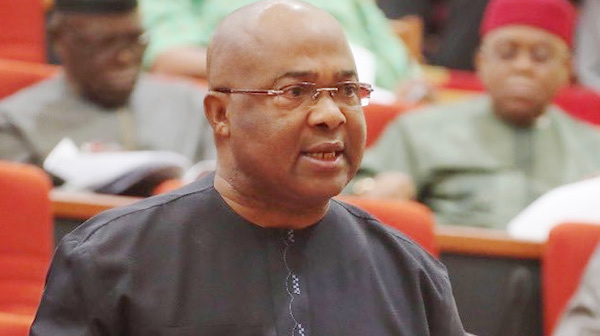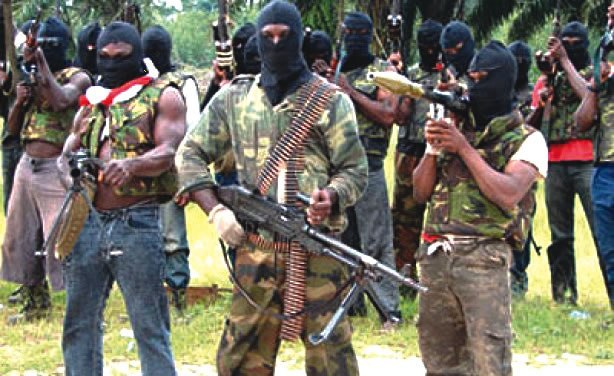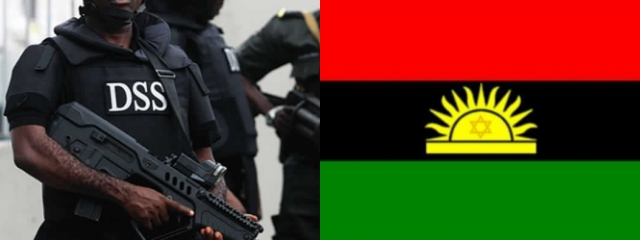Security Situation in Nigeria is Dire, Country’s Delegates tell ECOWAS Parliament
Nigeria’s delegation to the ongoing Economic Community of West African States (ECOWAS) Parliament on Thursday said the security situation in the country is dire.
The assessment was made during the 33- member Nigerian Delegation Country Report delivered to the ECOWAS Parliament in Abuja at the ongoing 2021 First Ordinary Session of the ECOWAS Parliament, holding in Nigeria from the 27th- 12th June 2021.
The nine-page report captured political, security, human rights, health situations and the status of implementation of the ECOWAS texts.
In her presentation, Hon. Lynda Chuba Ikpeazu told the Community Parliament that, “the security situation in Nigeria is dire”, adding that: “There has been a tremendous increase in the spate of unfettered violence, abductions, and killings by terrorist groups, bandits and other criminal elements.”
She said: “The number of reported security incidents within the reporting period shows a progressive increase in insecurity. In the fourth quarter of 2020, 256 security incidents were recorded in which 384 persons were killed, and 510 persons kidnapped. By the first quarter of 2021, the number of recorded security incidents have increased by 31.25% to 336 incidents, with the number of people killed increasing by 88.54% to at least 724 persons, while the number of those kidnapped rose by 57.25%, this translates to 802 persons.”
The Nigeria Country Report also highlighted that “highways and schools of learning have become target places for the nefarious activities of these bandits and kidnappers, with the North-Western region being hardest hit.”
Between December 2020 and April 2021, the Nigeria Country report noted that at least 364 students were kidnapped from their schools, along with countless highway travellers.
According to the report: “Primarily affecting the Middle Belt and North-West states, clashes between farmers and herders over land have spurred the formation of ethnic militias and vigilante raids, that has resulted in extrajudicial killings and the decimation of towns and villages. These nomadic herdsmen ravage towns in their path and have had incursions into some states in the South East, South-South and South West of Nigeria. To prevent further loss of lives and properties brought about by these clashes, there is an outright ban on open grazing in the Southern parts of the country.”
The report revealed that the Federal Government of Nigeria is in the process of establishing a National Centre for the Control of Small Arms and Light Weapons (NCCSALW) to be domiciled in the Office of the National Security Adviser, adding that: “ The NCCSALW is set to serve as the institutional mechanism for policy guidance, research and monitoring of all aspects of small arms and light weapons in Nigeria. This initiative is part of the ongoing restructuring of Nigeria’s security architecture to address emerging threats and strengthen the regional mechanism for the control, prevention and regulation of small arms and light weapons.
“The establishment of the National Centre for the Control of Small Arms and Light Weapons (NCCSALW) will curtail the impact of the proliferation of small arms and light weapons across national borders in Africa and the Sahel region which has resulted in terrorism, human trafficking, organized crime, insecurity and insurrections in West Africa and Nigeria in particular.”
However on the positive side, the report said: “Notably, the Nigerian National Assembly has been working tirelessly to address the various concerns of the Nigerian people through a comprehensive review of the 1999 Constitution. The Constitution Review highlights the following: Active local government participation in governance – by enabling direct funding from the Federation Account, local governments would become more impervious to interference by other actors in the political domain. Thus, allowing people-oriented governance; Increased women participation in politics and the promotion of a more gender-balanced public space; Devolution of power to state governments by the migration of specific items on the Exclusive Legislative List to the Concurrent Legislative List, for example, matters relating to quarantine, minimum wage etc, and, Extensive electoral reforms geared towards the promotion of democratic growth; Comprehensive Judicial reforms aimed at a more independent and efficient judiciary.”
The report states that the Federal Republic of Nigeria remains committed to developing and supporting the development of resilient and sustainable democratic structures within Nigeria and the West African sub-region.
The Delegation said: “Nigeria will continue to collaborate with member-states to forge lasting solutions on security and other matters that would ensure peace and prosperity in the ECOWAS region.”








